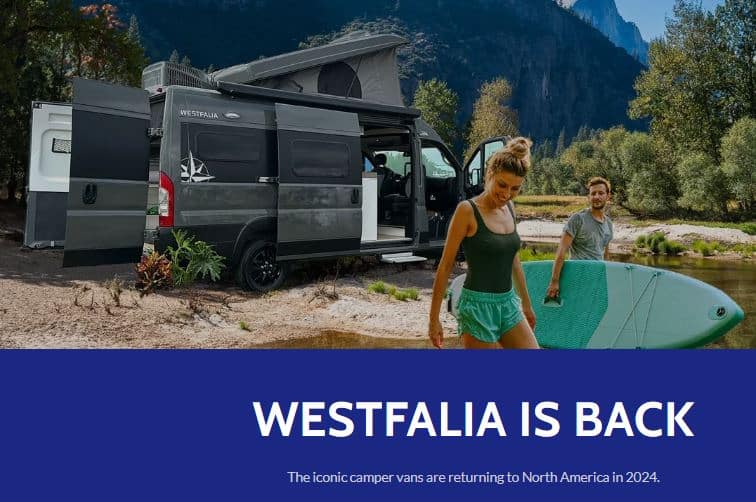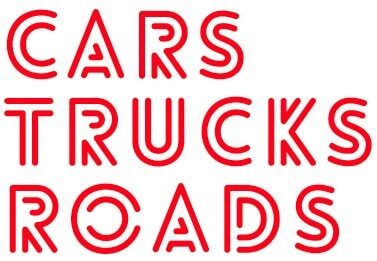
Westfalia, famed for its Volkswagen camper conversions, is making a comeback to North America after a 20-year hiatus, with plans to launch a new camper van based on the Ram ProMaster in 2024. Instead of its iconic VW models, which are not currently available in North America due to regulatory hurdles, Westfalia is turning to the Ram ProMaster as its vehicle of choice.
These new camper vans will be converted by Roadtrek in Ontario, Canada, and are designed to sleep up to six people with a pop-up roof for extra space. Although a dealer network for these vans is still in development, the return of Westfalia with its signature pop-top roof is creating excitement, promising a blend of nostalgia and new adventures on the road.
Challenges Ahead: Assessing the Viability of Westfalia’s North American Comeback
While the excitement for the return of Westfalia campers to North America is palpable, there are several reasons why this comeback might not be as successful as anticipated:
- Market Saturation: The North American market has seen a surge in the variety of camper vans and RVs available. With so many options already on the market, Westfalia might find it challenging to carve out a significant niche.
- Brand Recognition and Nostalgia: While Westfalia has historical brand recognition, the nostalgia may not translate into sales. Younger generations may not have the same emotional connection to the brand, and older generations who do might not be in the market for a new camper.
- Changing Consumer Preferences: The modern camper market is shifting towards more eco-friendly and technologically advanced models. Westfalia’s new offerings, particularly if they start with a traditional gas-powered Ram ProMaster base, might not align with these trends.
- Competition with Electric Models: With the rise of electric vehicles, there may be more interest in electric campers like the anticipated Volkswagen ID Buzz. If Westfalia doesn’t offer an electric option, it could miss out on a growing segment of the market.
- Economic Factors: The economic climate can greatly affect the sales of luxury items like campers. If the economy is in a downturn, the demand for new campers, even from a beloved brand, might be lower.
- Cost of Innovation: Adapting to North American standards and consumers’ expectations might require significant investment. The cost of designing new models, especially if they are to include the latest technologies, could be prohibitive.
- Distribution and Service Network: Establishing a robust dealer and service network is critical for success. If Westfalia cannot quickly establish this network, it might struggle with sales and customer satisfaction.
- Certification and Regulation Hurdles: Meeting North American automotive standards and regulations can be costly and time-consuming. If Westfalia finds it challenging to meet these requirements, it could delay the launch and impact market entry.
- Cultural Fit: The van life culture in North America, while growing, is quite distinct. Westfalia will need to ensure that its offerings resonate with the current van life community’s values and lifestyle.
- Operational Challenges: Integrating operations with Roadtrek in Ontario and aligning with the French-based Rapido Group‘s standards could present logistical and operational challenges, affecting the quality and customization options available to the North American market.
These factors represent potential challenges that Westfalia might face with their comeback. Success will depend on how well the company can navigate these issues and adapt to the current North American market.
Riding the New Wave: The Potential Success of Westfalia’s North American Revival
Westfalia’s return to North America could succeed for several reasons:
- Brand Legacy and Nostalgia: Westfalia has a strong brand identity associated with adventure and freedom, stemming from its iconic VW camper conversions. This nostalgia could drive interest and sales among both older generations who want to relive their youthful travels and younger audiences seeking a piece of automotive history.
- Van Life Culture: The resurgence of the van life movement, especially post-pandemic, with more people interested in travel and remote living, could provide a ready market for Westfalia’s new offerings.
- Modern Adaptations: Leveraging modern platforms like the Ram ProMaster could attract buyers who are looking for the reliability and comforts of a new vehicle with the charm of a classic design.
- Partnerships and Production: The partnership with Roadtrek in Ontario for conversion operations could ensure high-quality craftsmanship and innovation in camper designs, which could be a strong selling point.
- Diverse Portfolio: Westfalia’s parent company, Groupe Rapido, has a diverse range of recreational vehicle brands, providing it with the experience and resources to understand and adapt to market demands effectively.
- Strategic Location: Establishing operations in Ontario places Westfalia in a good position to access both the U.S. and Canadian markets, potentially reducing shipping costs and improving delivery times for North American customers.
- Adaptive Product Strategy: If Westfalia remains flexible and adaptive to consumer feedback and market trends, it could continuously innovate its product offerings to meet the evolving needs of modern travelers.
The combination of a strong brand heritage, a supportive parent company, and the burgeoning popularity of van life could make Westfalia’s comeback a successful venture.


